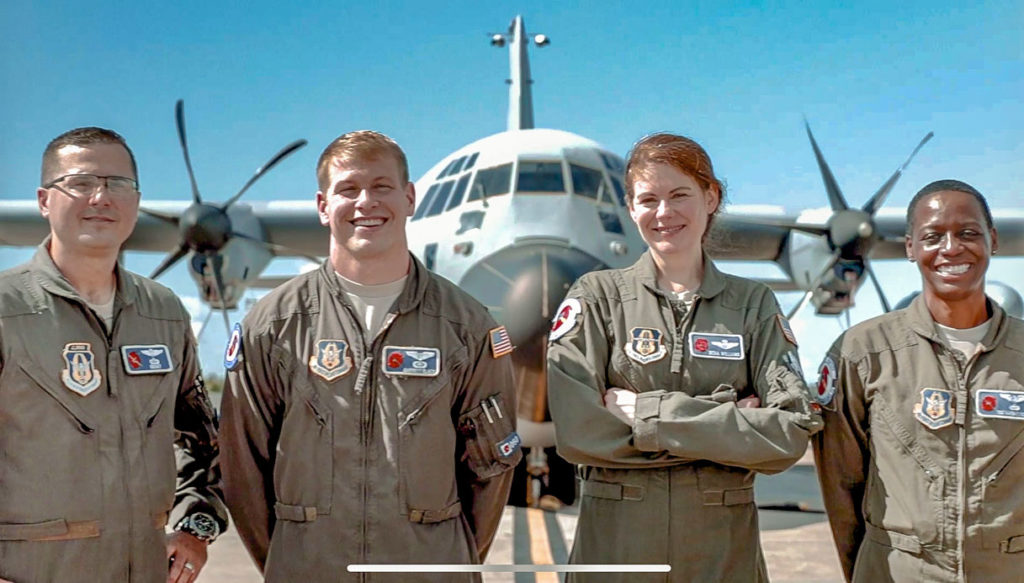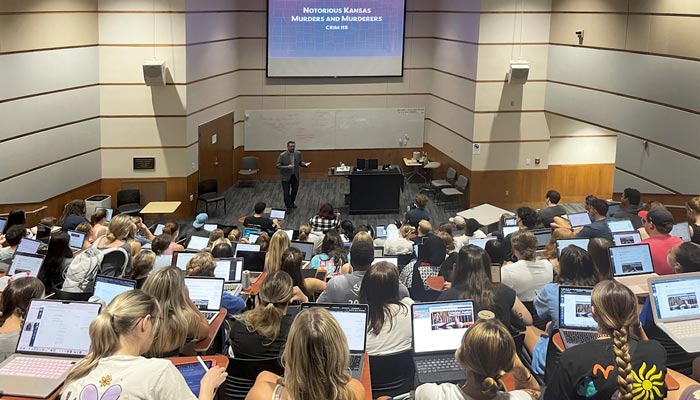Eye of the hurricane
'Hurricane Hunter' urges storm-season prep
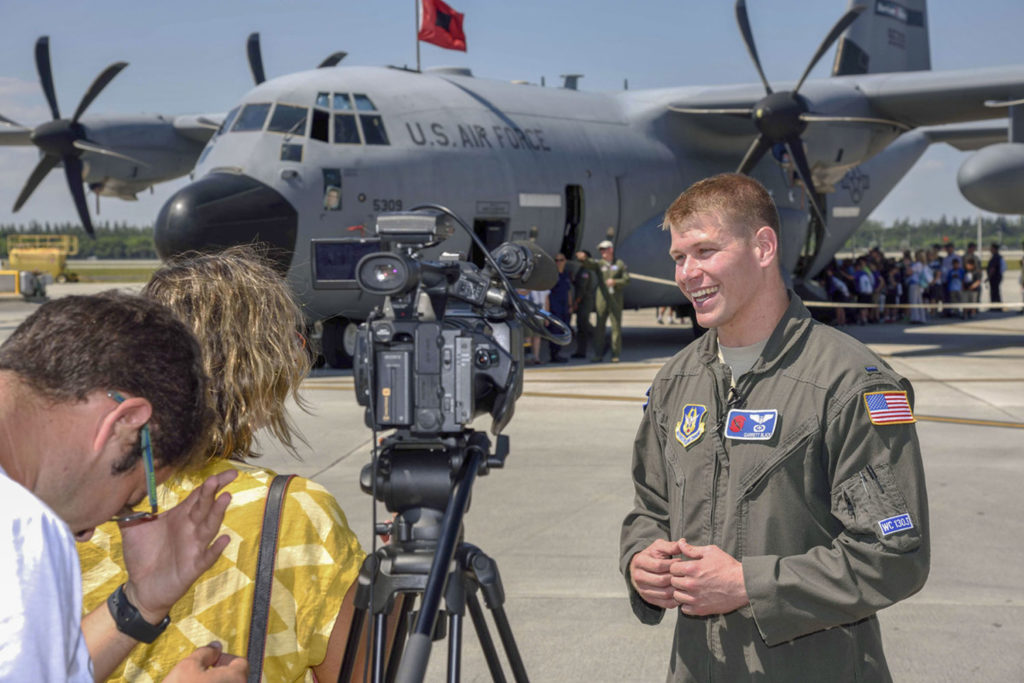
Aerial reconnaissance weather officer Garrett Black, a U.S. Air Force captain, will never forget the first time he flew through the eye of a hurricane. It was 2016, the year Black joined the “Hurricane Hunters” after two years in the Kansas Air National Guard. As his C-130 penetrated the massive cloud bank and soared into blue skies, Black knew he’d been transported someplace otherworldly.
“I was nervous, I’m not going to lie,” Black, c’14, said in a recent interview from the 53rd Weather Reconnaissance Squadron’s headquarters at Keesler Air Force Base in Biloxi, Mississippi. “I remember the feeling when we made it through the eye wall and looking out the window; it was a photogenic storm, since it was fairly strong, and just looking around and knowing that you’re in the middle of the eye of a major hurricane, in the air, in an airplane, it’s a very surreal feeling.
“It’s one of those experiences that humbles you, when you see how powerful nature is and how beautiful it can be at the same time.”
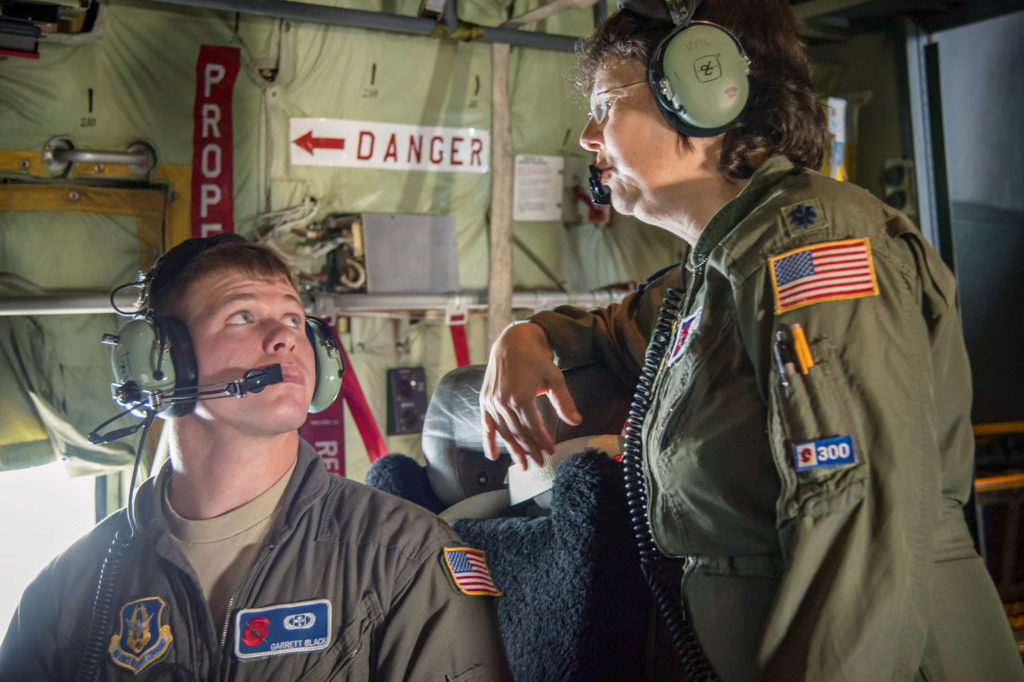
Flying through last year’s Category 5 Hurricane Dorian, however, was an experience on an altogether different scale. Black, one of the 53rd’s 20 airborne weather officers, happened to be at his aerial post, within Dorian’s eye, when the monster storm crashed into the Bahamas. The readings he’d been taking from aloft and at sea level were so intense that he’d been double and triple checking the numbers; they were almost too graphic to be believed.
Gazing down from the eye, Black saw waves crashing onto the Bahamian shoreline. He’d already spent hours measuring the strength of wind and seas, and he understood in an instant the devastation to come.
“It’s a very disturbing feeling,” Black says. “You just hope that everyone is listening to emergency managers and listening to the National Hurricane Center and paying attention to the forecasts and were as prepared as possible.”
Now that the world is gripped by the ravages of a pandemic, Black delivers a similar message: Pay heed to the experts. In a time when ordinary trips to the hardware store become logistical hurdles, Black cautions, weather preparations should be considered at every opportunity.
As with all forms of severe weather, those who ignore warnings endanger not only themselves, but also their neighbors and emergency response teams forced to care for them, whether they are firefighters searching through devastated homes or doctors and nurses exposing themselves to a deadly virus.
“It’s a team effort. It really is,” Black says. “Everyone has to play their role and do their part. The big takeaway is to always be prepared, and now is the time that people need to be thinking about that, especially with everything else going on. It’s a good time not to lose focus that hurricane season—and even tornado season, for people in Kansas—is here, more or less, and we all need to be prepared. You never know what kind of season it’s going to be.”
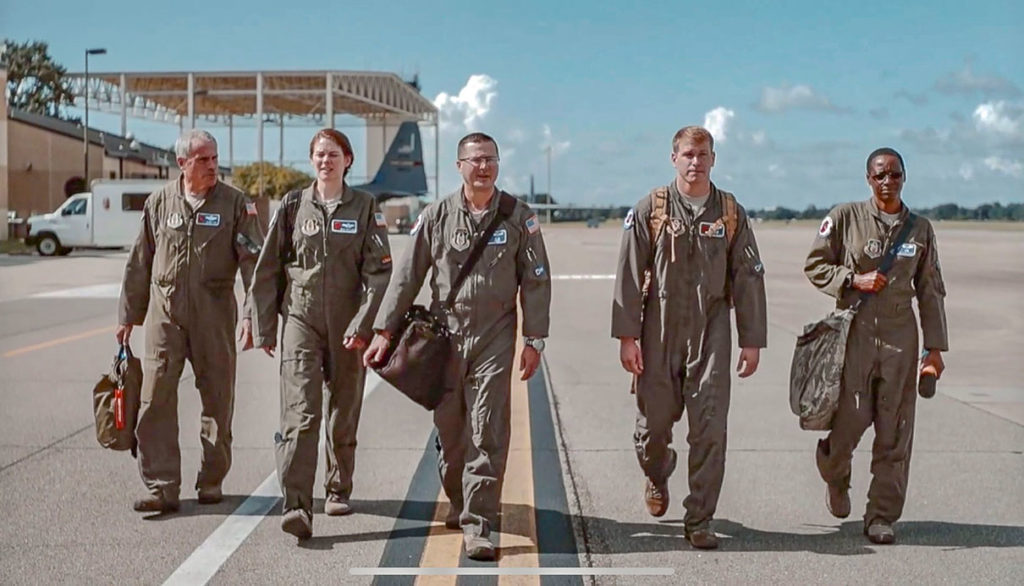
Growing up in Hutchinson, Black early on fell under the spell of severe weather. He came to KU to study meteorology with the hope of finding his way into a storm-tracking career; he just never imagined it would take him out over the Atlantic and Pacific Oceans and the Gulf of Mexico, straight into the eyes of hurricanes and tropical storms.
The field requires expertise in a vast range of disciplines beyond meteorology: mathematics, physics, chemistry, computer science, geography and, now more than ever, communications. As a hurricane hunter, it’s Black’s duty to direct his aircraft’s flight crew to the coordinates he wants to visit so he can continuously collect data that’s uploaded every 10 minutes to forecasters at the National Hurricane Center in Miami.
Because his job blends his passionate interest in severe weather and his desire to help others, Black hopes to keep his airborne assignment until retirement.
“It’s a lot of fun, to be honest with you. It gives you an opportunity to go out and actually see the weather. You get to develop different experiences that many people will never have.
“Mother nature will not stop. That’s something we do need to remember.”
